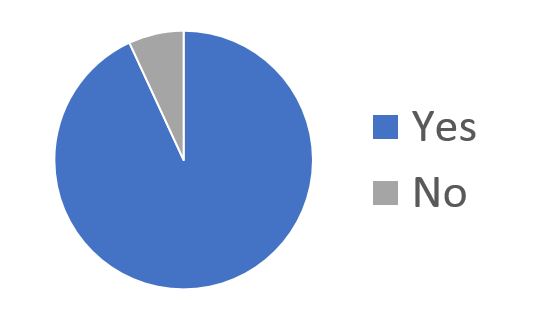BY: MACKENZIE HANNUM
“What is food science?”
Don’t get me wrong, I love food science. I love it enough in fact to be getting a PhD in it, however over the years I have begun to grow slightly cynical about my chosen field. While I used to be excited when someone asked me what I did for a living, recently I have found myself dreading meeting someone new, because I know the inevitable “what do you do” conversation will almost always go like this:
Stranger: “What do you do for a living?”
Myself: “I’m actually studying food science.”
Stranger: “Oooh that’s cool, so you’re like a chef?!”
Myself: “Not really, my brother is the chef of the family. I am more interested in the
science behind food.”
Stranger: “Oh okay! So like a nutritionist then!”
Myself: “Kind of! (Awkwardly smiles and changes the subject)”

http://i0.kym-cdn.com/photos/images/original/000/291/006/5d3.jpg
This has happened enough in my life that I have lost my stamina, and just politely smile and change the subject because I found that for some people they just cannot wrap their minds around what food science really is. Frankly, I also struggle trying to describe it. But if food science is truly something that I love, then why am I not running through the hills screaming about it at the top of my lungs? Why do I find myself feeling there is a unique disconnect between people who study food science and those who have never heard of it, unlike other professional disciplines such as medicine or accounting? Am I the only one who feels this way?
At the root of it all, what is being misinterpreted or misunderstood? Have we ever tried to dig deeper into these conversations? Why it is that people associate food science only with health, nutrition, or the culinary arts? Why do I feel like as a society we take food science for granted, not even thinking twice about who made the cereal that lines the shelves in the grocery stores? We spend our time trying to explain how we aren’t technically a chef or a nutritionist possibly at the expense of relaying valuable information. With all of the confusion, we may be missing the target completely and even sending the wrong message about the field we love.
When I sense these conversations beginning, I quickly get frustrated, which has become a running joke among my friends, but I started to think the other day… how can I change the conversation? I know I am guilty of changing the subject for the sake of preventing confusion, only to, as I realize now, leave the question unanswered. Is there a better way to communicate our mission?
I thought a good place to start my quest was to find out: how do others perceive food science from an unbiased, anonymous perspective? In our field, we complain about people not understanding what food science is, and often I find myself in an echo chamber. So, in order to remove myself from that chamber I decided to venture out of the world of the science of food, and survey a larger group of people, specifically those not pursing a food science degree or job, and ask them straight up what they believe food science to be. In order to better hold a conversation about food science, we need to understand where people are currently coming from, and how we can meet them where they are.
The Survey
The intent behind this survey was to ask people who are not food scientists to shed light on what they believe food science to be. The survey was distributed through social media and forwarded along by mutual friends. A total of 29 people responded to the survey, many of whom already knew about food science because they were connected with someone who was involved in the discipline. While the survey had a limited sample size and target demographic, I was surprised by how much new information I gathered from it—and even when these answers came from people who are somewhat familiar with the field, they definitely provided new insights into the psyche of the American public today with regards to food science. The purpose of this survey was to spark a new conversation, to discover if there is a different more salient way we can communicate the distinguishing features of our field that set us apart from other fields involved with food. While I acknowledge that this survey does not hold all the answers—far from it— it definitely starts a conversation.
The Questions
So, without further ado these are the questions I asked for those that have heard of food science before:
- How would you define food science? What three words that come to mind?
- Do you think food science affects you?
- What questions do you have when you walk into a grocery store? What fears or concerns might come to mind?
- What questions do you have when it comes to food in general?

Figure 1. Respondents answers to if they had heard of food science before or not.
For the two respondents that hadn’t heard of food science before I asked the following:
- Since you haven’t heard of it before what would you think is the definition of food science? Take a stab at it (there are no right or wrong answers).
- What are three words that come to mind if you were to think about what you think food science is?
- Is there anything that confuses you about food science?
- Have you ever contemplated how the box of cereal gets on the grocery shelf? Who makes it?
How would you define food science?
“Where chemistry and culture meet on your dinner table.”
“I think there are different aspects! Creating new items, targeting consumers with appealing marketing and also determining palate/flavor combinations and what works and what doesn’t.”
“The study of the details that make up the food we consume, and how it affects health. This would include breakdowns of all chemical methods and/or additives to make food consumable.”
“The study of all things relating to the development of food products.”
The list is endless! These definitions alone produce so much variety. Based on the Institute of Food Technology (IFT) their official definition states that, “Food science is the study of the physical, biological, and chemical makeup of food; and the concepts underlying food processing.”

Figure 2. A compilation of responses when people were asked to describe food science in three words.
What about those two people who had never heard of food science?
“Study of food in humans.”
“How to continue to produce crops in various climate changes.”
Their words to describe food science weren’t far off either: laboratory, good, kitchen, chemicals, volunteer and safety.
When comparing respondent definitions to those from IFT, there isn’t one in disagreement. They all drew from different aspects of what food science is and that is the joy of our discipline. The beauty of food science is that it is so diverse and multi-disciplinary. It’s no wonder it is so hard to define! So rather than focusing on definitions, what I believe to be more beneficial is to explain or show how food science applies to the lives of our peers. Maybe, then our friends can see what being a food scientist really means to them personally.
That doesn’t mean they might not have more questions. They might wonder what is it about a food scientist’s job that addresses questions and concerns of our friends and family? Do we possess the knowledge or the answers they so desire? Or the tools to discover the answer? Or are their questions directed elsewhere?
When comparing respondent definitions to those from IFT, there isn’t one in disagreement. They all drew from different aspects of what food science is and that is the joy of our discipline. The beauty of food science is that it is so diverse and multi-disciplinary. It’s no wonder it is so hard to define! So rather than focusing on definitions, what I believe to be more beneficial is to explain or show how food science applies to the lives of our peers. Maybe, then our friends can see what being a food scientist really means to them personally.
That doesn’t mean they might not have more questions. They might wonder what is it about a food scientist’s job that addresses questions and concerns of our friends and family? Do we possess the knowledge or the answers they so desire? Or the tools to discover the answer? Or are their questions directed elsewhere?

https://memegenerator.net/img/instances/500x/61744465/im-a-food-scientist-i-solve-problems-you-dont-know-you-have-in-ways-you-dont-understand.jpg
What questions did they have about food science?
The respondent’s questions actually had a lot of questions for food scientists, but I consolidated them into four major themes for your convenience (you’re welcome):
1. Grocery store
2. Health
3. Perception
4. Product Development
Questions about the Grocery Store
A lot of the questions respondents had revolved around transparency or understanding why certain ingredients are in a food product. Many of them also dealt with the origin of the food and how it gets to the store. This is actually what hooked me in food science in the first place—a grocery store is something we take for granted in the 21st century. Before hearing about food science, I never once considered how that box of cereal got onto that shelf, or where the oranges originated. I recognized that I was naïve and privileged to be presented with numerous safe options in a grocery store and never took the time to think deeper about it growing up.

https://3c1703fe8d.site.internapcdn.net/newman/gfx/news/hires/2017/americansare.jpg
Recently, people are starting to inquire more about what ingredients go into the food products they consume or the nutritional quality of a product they are presented with. We can find numerous blog posts, books and movies that attack the center aisles of grocery stores or the evolution of food over the years (CC: Omnivore’s Dilemma, Food Inc., What the Health—the list is endless!). I think that we can all agree that as consumers, we are interested in learning more about food production so we can better live a happy and healthy life! So as food scientists how can we shed light on the products in the grocery store and make the information truly accessible to those who want to know but do not want to spend years getting a food science degree? How can we nudge people in the right direction to find the answers they desire when they walk into a grocery store? Many consumers are flat out more curious than they used to be—which isn’t a bad thing! As food scientists, we can engage in that dialogue and make the grocery store more of a meeting place between food and people, rather than belittle/dismiss honest questions from concerned consumers.
Questions about Food and Health
This is an area where we need all the help we can get. We need help from nutritionists, dieticians, chefs, doctors, consumers, food scientists, food microbiologists, and the list goes on. Other than the air we breathe, the food we eat is our body’s more constant and intimate interaction with the outside world, and thus probably has a lot to do with its overall health. This is a hot topic and one of the largest concerns nowadays when it comes to food and living a healthy lifestyle, and is also where facts can be muddled and enemies decided when in reality we are all working towards the same goal. Too often food science takes the blame, but I can assure you that no company out there has bad intent when creating a new food product. I believe delving further into what it means for a food to be healthy holds the most potential for food science. This is where we can creatively solve problems through a collaborative and well thought out effort! We eat food every day. We need food to survive, and for some to thrive (hehe I know I thrive on food), so how can we make food better than ever before? To make something that tastes good, satisfies your hunger and won’t blow your diet is a hard task but on the forefront of every food scientist’s mind. The questions you have in this area won’t go unseen—they are questions we all have ourselves.
Questions about Perception
I might be biased with my background in sensory science but this area of questions was the most intriguing to me:
“How do people interpret taste? Why does it vary from person to person?”
“What ingredients have a negative connotation but are actually beneficial?”
“Why do foods that are so bad for you taste so good?”
“How come people have different thresholds of spice and heat?”
There is a ton of research going on in the areas of perception and variety amongst humans but there are still a ton of questions to answer. As food scientists, I believe that the more we understand about perception the more we can better guide product development and drive the conversation with consumers.
Questions about Product Development
This area of questions dealt mainly with ingredients and what goes into the different food products out there.
“Who comes up with these flavors?”
“What is in it? What is in our food?”
“What is the process of creating foods?”
This is our bread and butter as food scientists and can provide an opportunity for us to communicate our efforts. It wasn’t until I personally took a class in product development, my senior year capstone, where I truly grew an appreciation for all that goes into making a new food that is shelf-stable and frankly, delicious. We only had a few months, when in reality many people don’t realize that in the industry it can take years before a product is ready to be placed on the market. That in and of itself shows how much is considered and goes into making a new product. Why don’t we start to share that conversation? Take people on the journey with us. Tell them the trial and errors, the decisions made, the hurdles overcome. Often times we focus only on the beginning and the end of a new product—where it was sourced and the final product—when we need to shed light on the process, the journey a food product takes when being developed. How did it get from ingredients to a packaged product on our shelves? Who all helped create it? I think once consumers can appreciate all of the work that went into their favorite food products, they would not be so quick to dismiss them from reading a random Facebook article.
Recently I brought up this (genius!) train of thought with a friend of mine and what he told me opened my eyes. It is not that companies haven’t thought of telling consumers about the product journey before—they just have more at stake. It raises up a good discussion about protecting intellectual property, which may be the strongest reason behind companies not divulging every minute detail about how their product is made. This is for all forms of companies! Not just food but also any consumer packaged product—your shampoo, makeup, paper towels! Protecting IP is a cornerstone to every company, every scientist, every person—just goes to show how some things aren’t always black and white like we’d hope.
Conclusion
I may or may not be alone in some of these thoughts and conclusions but regardless I hope this blog post gets you to think—whether you are a consumer or a food scientist. Start thinking about how we can all work together to make the food we all desire. How can we open up those communication channels to allow a team effort to develop? How can we better engage with one another to get some real clarity on what food science is and why it is important?
Let’s expand the conversation surrounding food. Too often we get lost in trying to explain the clean label or natural/organic movement thinking that we are addressing what people are most concerned with. But these respondents to me present a slightly different story. The questions raised start to focus on the root causes behind why people are looking for clean labels and natural products. The questions serve as an opportunity for budding food scientists, a spring board for us to hone in on our career goals, develop our passions in a way that can help others and move society forward.
So, how can we capitalize on this as we go onward? We need to start working with people in other disciplines and get others on the same page. Where does our role stop and someone else’s begin? It will be a collaborative effort, scientists from all disciplines should play a role on making connections between consumers and scientists. As a food scientist how can we help these conversations develop? How can we grow our perspective and the consumer’s? I don’t know about you but these questions will keep me thinking for a while…






Loved this! As a dietitian who works in a supermarket and explains how to read food labels to consumers every day, I think a greater collaborative effort between food scientists and dietitians would be great! Together we can help consumers enjoy and understand the ingredients in their foods, instead of fearing them.
I love this analysis of what it means to be a food scientist. As a biochemist and a food scientist, it’s often easier to default to biochemical terms when people ask me what I do. I like how these four major themes/questions are broken down. It’s a helpful grouping mechanism for sure. Great work.